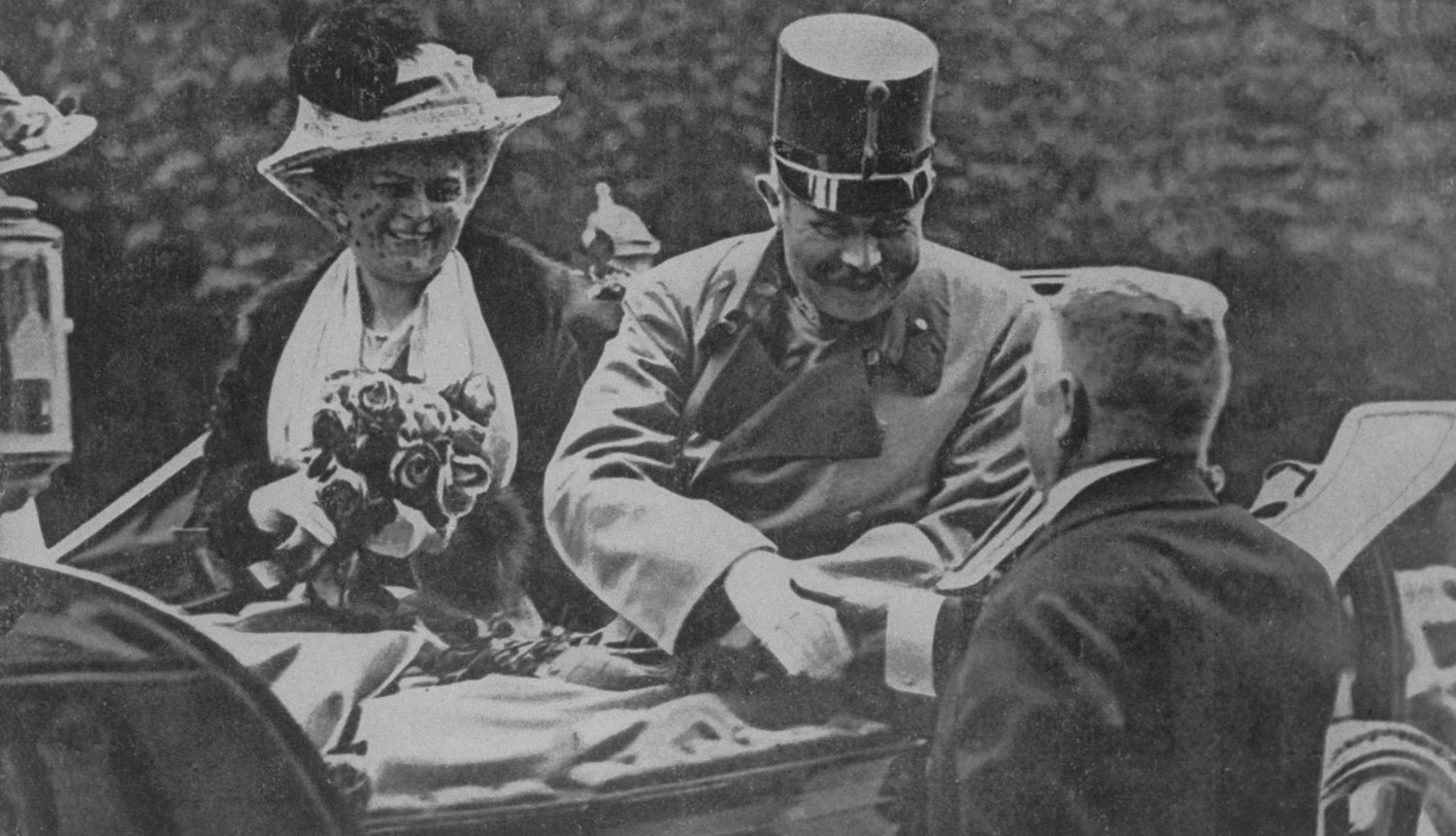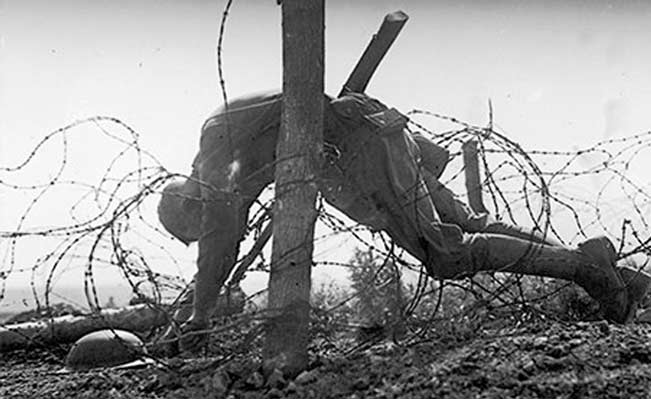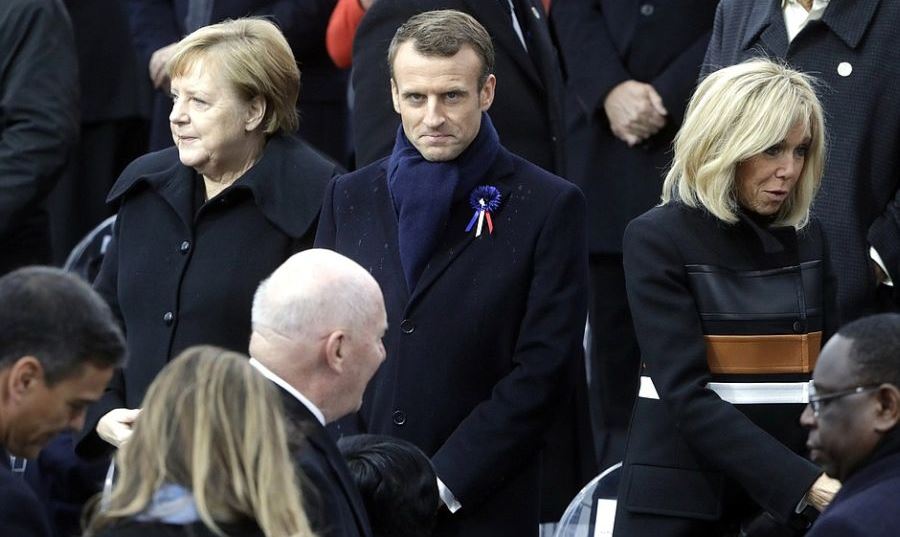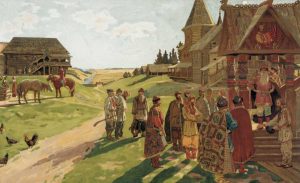
Views: 1149
This Remembrance Day will doubtless see strenuous efforts by some to justify the fruitless bloodbath that was the First World War. Revisionist commentators have long attempted to rehabilitate the conflict as necessary and just, but the arguments do not stand up. It does no service to the memory of the dead to allow any illusions in the justice or necessity of war, particularly so when the precedents will be used to argue for the next ‘necessary’ conflict. From the causes of the war, to its prosecution and its results, here are the counter-arguments to ten common pro-war ploys.

1. The war was fought in defence of democracy
This is contradicted by the basic facts. Germany had universal manhood suffrage while in Britain, including Ireland, some 40% of men still did not qualify for the vote. In Germany also, there were attempts to justify the war on the grounds that it was being fought to defend civilised values against a repressive, militaristic state, in the form of Russian autocracy.
2. Britain went to war due to a treaty obligation to defend the neutrality of Belgium
There was no clear and accepted obligation on Britain to do this, and, in fact, before the Belgian issue appeared, the war party in the cabinet was already pushing for British intervention on the entirely different ground that there were naval obligations to France. These obligations had been developed in secret arrangements between the military of both countries, and were never subject to any kind of democratic accountability. The Germans even offered guarantees over Belgian integrity, which the British government refused to consider at all.
3. German aggression was the driving force for war
However aggressive the German leadership may have been in 1914, the British establishment was at least as determined to take the opportunity to go to war with its imperial rival. At one point the Foreign Office even seized on imaginary German incursions into France to justify a British declaration of war on Germany. The declaration letter had to be retrieved from the German ambassador and rewritten when it was discovered that the stories were false. The enthusiasm of the British ruling class for war undermines any justification for it based on German aggression.
4. Germany had started a naval arms race with Britain
Imperialist competition between the two states over markets and resources preceded the arms race in the fifteen years before the war. Britain’s naval power was the vital element in its ability to restrict German access to markets and resources across the world. Unless Britain was willing to allow Germany to expand economically, the logic of capitalist competition meant that Germany was bound to challenge British naval supremacy. The latent violence of the leading imperial nation is always the context for aggressive challenges to the status quo on the part of rising powers.

5. German imperialism was uniquely vicious and had to be challenged
The atrocities committed against the Herrero people in Namibia were indeed terrible crimes, but were hardly unique compared to the horrors committed by all those involved in the rubber industry in the Belgian Congo, to take but one example. Also, European opinion had only a few years before 1914 been horrified by the brutality of another colonial power when it was engaged in ruthlessly expanding its dominance over independent states in Africa. This was Britain in its wars of aggression against the Boer states in South Africa, during which concentration camps were first used in order to control a civilian population.
6. Public opinion was united in favour of the war, as shown by images of cheering crowds in 1914
It is now usually admitted that the degree of enthusiasm for the war was strictly limited, and the evidence is that the crowds who gathered at the outbreak of war were by no means united in martial enthusiasm. In fact sizeable and widespread anti-war demonstrations occurred in both Britain and Germany. Had the leaderships of Labour and Socialist parties across Europe not caved into demands to support their national ruling classes in going to war, it is quite possible that the conflict could have been stopped in its tracks.
7. The morale of British troops fighting on the Western Front remained intact to the end of the war
While Britain may not have suffered quite the same scale of mutinies as in the German and French armies, at times there were whole stretches of the front where troops became so unreliable that generals did not dare order them into combat. The evidence for widespread cynicism about war strategies, contempt for the military leadership, and grave doubts about the purpose of the war, cannot be wished away by the revisionists. In so far as soldiers carried on willingly fighting the war, the explanation needs to be sought in the habituation to obedience, as well as the threat of court-martial executions. There is no need to invoke either fervid nationalism or any kind of deep psychological blood-lust as explanations.
8. The military leadership, notably General Haig, was not a bunch of incompetent ‘donkeys’
Attempts to rehabilitate the likes of General Haig founder on some of the basic facts about the tactics he relentlessly employed. Repeated infantry attacks on opposing trenches consistently failed to gain any clear advantage, while causing colossal casualties. On the first day of the battle of the Somme, 1st July 1916, 57,000 troops out of 120,000 were killed or wounded. Despite continuing carnage on an incredible scale, Haig carried on ordering further attacks. When any hope of a breakthrough against the German lines was clearly lost, the purpose of the battle was shifted to attrition pure and simple. The plan now was to kill more German troops than the British lost. Since there was no way of reliably measuring the casualties on the other side, Haig relied on estimating it through the losses of his own side. On this basis he began to be angered when the army suffered too few losses, as when he complained that one division in September had lost under a thousand men. There can be no defence for this kind of disregard of human life.
9. The end of the war saw the triumph of liberal capitalism, against collapsing autocratic Empires
In fact all states involved in the war were deeply destabilised. Even the United States, whose involvement was the most limited, experienced the ‘Red Summer’ of 1919, with unprecedented labour revolts, such as the Seattle general strike, alongside savage repression of socialists and black Americans. Britain saw the beginning of the Irish war of independence, and increasing unrest in India, which marks, in effect, the point at which the Empire began to unravel. Domestically, there was also a wave of radical working-class unrest, particularly in the ‘Red Clydeside’, which culminated in troops being sent into Glasgow to impose martial law.
10. The war achieved anything worthwhile whatsoever
The war opened up a period of endemic economic dislocation, and outright crisis. In Britain there was a decade of industrial decline and high unemployment even before the Great Depression. In effect, it was only the Second World War which brought the major capitalist powers out of the slump. The First World War saw the point at which capitalism became addicted to war and to a permanent arms economy. The war demonstrated the capacity of capitalism to create industrialised waste, carnage and destruction on a colossal scale. The remembrance of the war is appropriately a time for mourning the horror, the loss and the waste of it all, but it should also provoke a determination to resist our rulers’ insistence on promoting war to further their interests. War can achieve nothing other than to create the conditions for further wars.
Popular opinion has, ever since its ending, remembered the First World War as a time of horrendous and futile misery and slaughter, as epitomising political and military leaders’ incompetence and callous disregard for human life. That popular judgement, which has helped turn common opinion against war in general, was correct, and we must not let the war mongers dismiss this instance of the wisdom of ordinary people.
Originally published on 2014-11-09
About the author: Dominic Alexander is a member of Counterfire, for which he is the book review editor. He has been a Stop the War and anti-austerity activist in north London for some time. He is a published historian whose work includes the book Saints and Animals in the Middle Ages, a social history of medieval wonder tales.
Source: Counterfire
Origins of images: Facebook, Twitter, Wikimedia, Wikipedia, Flickr, Google, Imageinjection & Pinterest.
Read our Disclaimer/Legal Statement!
Donate to Support Us
We would like to ask you to consider a small donation to help our team keep working. We accept no advertising and rely only on you, our readers, to keep us digging the truth on history, global politics, and international relations.
[wpedon id=”4696″ align=”left”]











